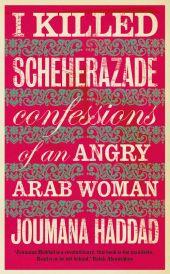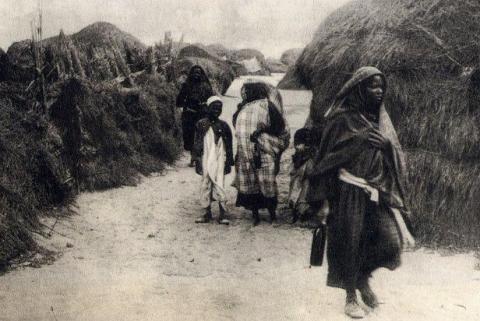A childhood memory urged me to pick up the novel titled ‘Hurma’ by Ali Al-Muqri. I first heard the Arabic word ‘hurma’ being used when I was a young girl on a mini-pilgrimage to Mecca circa 1995. It was being shouted out by an ugly old male guard who was holding a long wooden stick in his hand to usher the women as to where they can stand and pray around the Kabaa. I didn’t know the meaning of the word; but, whatever its definition, I sensed it held negative and oppressive connotations due to the guard’s aggressive physical stance towards us.
Curious to open the book to enter the world of a so-called female protagonist, I had hoped for an enlightening read into the character, the reality and psychology behind such a woman. I also wanted an insight into the cultural beliefs and attitudes that manifest in the society she inhabits. And, for sure, I was not at all disappointed. In truth, I was so astonished by the tale that I had to read it twice just to make sure that my eyes were not deceiving my mind.
Hurma the character is not even identified by a proper legal name to distinguish her from others as an individual human being. Even when all this young girl desires is to please her father, brother, husband and culture, she ends up pleasing nobody. From the age of eight, she is given the burka to wear with only two small slits for the eyes and is ordered about by everyone. She is also forcibly made to live in the shadows of existence and moves about only as an invisible black blob. Even so, without having any autonomous personal agency, she manages to find herself in very odd and dangerous predicaments.
Starting out in Sana’a, Yemen sometime circa Bin Laden, Al Qaeda, Guantanamo and the war in Chechnya, Hurma is subject to extreme religious indoctrination that she cannot but blindly follow. Her brainwashing is complete when she is a student at the Islamic Scientific Academy, where she comes to naïvely dream of becoming a female warrior to fight in jihad against ‘the heathen crusaders, the communists, the Jews in Palestine and infidels in general’.
It is during her time there that we are introduced to some of the preposterous religious arguments proposed by her Islamic lecturers and noting their general obsession with sex and how to limit and deny the female any known freedoms. With straight faces, they debate whether or not it is a sin for a woman to see dogs and chicken copulate or if it is halal for a woman to handle bananas and cucumbers! All the while, of course, they don’t question themselves as men nor do they admit to their own evident impotence and sexual perversions.
“We know that a woman remains a hurma even in death. She is mentioned by name only when this is unavoidable, because to mention her is an act of immodesty, and modesty is a part of faith. A man without faith is a man without modesty. A man who talks about his hurma has lost his modesty and therefore his faith.” (Page 80, a quote from Hurma’s Islamic professor).
Being so manipulated, Hurma is predictably married off to her brother’s friend. An extreme political-religious character, he carelessly takes her with him to the ends of the earth in his own longing for martyrdom and jihad. Making her a member of a mujahedeen cell in Yemen, eventually he uses her as a mule to carry gold, cash and explosive ingredients. Again, unwittingly, she ends up travelling through Saudi Arabia, Egypt, Afghanistan, Sudan, Pakistan and Iran and being exposed to the reality of holy war on the frontline.
All the while, however, we know as readers that Hurma carries a deep guilty secret and a sincere longing for something else that is rather different from the jihad that her husband offers her. But I won’t spoil that great surprise for you.
I also won’t spoil the incredible ways in which Al-Muqri reveals the deeply set contradictions of the irrational and violent ideology that not only oppresses women in the name of Islam, but also tends to lead the men to pursue goals of self-annihilation and suicidal missions. For the author is denouncing, ridiculing and exposing all the weaknesses of their arguments and turning them on their ugly head to expose the faults and sorry end results through one gullible person’s experience. It is no wonder that Al-Muqri received threats to his safety after publication of this book and had to go into hiding.
Some of the scenes will actually have you laugh in utter and absolute disbelief and do be prepared for the liberal use of sexually explicit content throughout the story. Just to mention one of the most memorable scenes, we find Hurma alone in a room in Saudi Arabia and watching an Islamic television programme, where the show is debating a notorious fatwa that was issued by an Egyptian Sheik who had belonged to the Al-Azhar University in Cairo, Egypt. This was a true event where the fatwa was publicly brought to light; although, eventually, it was rejected and thrown out.
The Sheik had ruled that if a woman must, for some unavoidable reason, spend time in the presence of a man who is neither her husband nor a close relative – which is of course prohibited by Sharia – then it’s possible for her to suckle this man, thereby creating a kinship bond between them and making it permissible for them to mix! There is a whole passage following this in which the details of how to manage such a fatwa are discussed and the reader is left in hysterics.
I won’t say much else about the plot’s development nor will I elaborate on the other highly colourful personalities in the tale whose personal journeys closely intersect with Hurma’s but that are also so very different. I highly recommend this book as it addresses the inherently insane psychology that masquerades as religious dogma; and, also, because it artistically explores the controlled belief system that ultimately negatively impacts on both of the sexes.
Al-Muqri not only plays on the irony of what the word ‘hurma’ means in Arabic – it means ‘sanctity’ – and how that has come into use, misuse and abuse; he, also, fully delves into the crazy world where such logic is imposed and showing us all the inevitable disturbing consequences. He is also leading us as observers to consider our individual and collective responsibility when it comes mainly to the treatment of women.
If you are, like me, ready to read with an open mind, then by the end you will be dying for Al-Muqri’s other works to be translated into English.
You can purchase ‘Hurma’ by Ali Al-Muqri at: https://www.amazon.co.uk/Hurma-Ali-al-Muqri/dp/1850772770
Note: This review was first published circa September 2015




